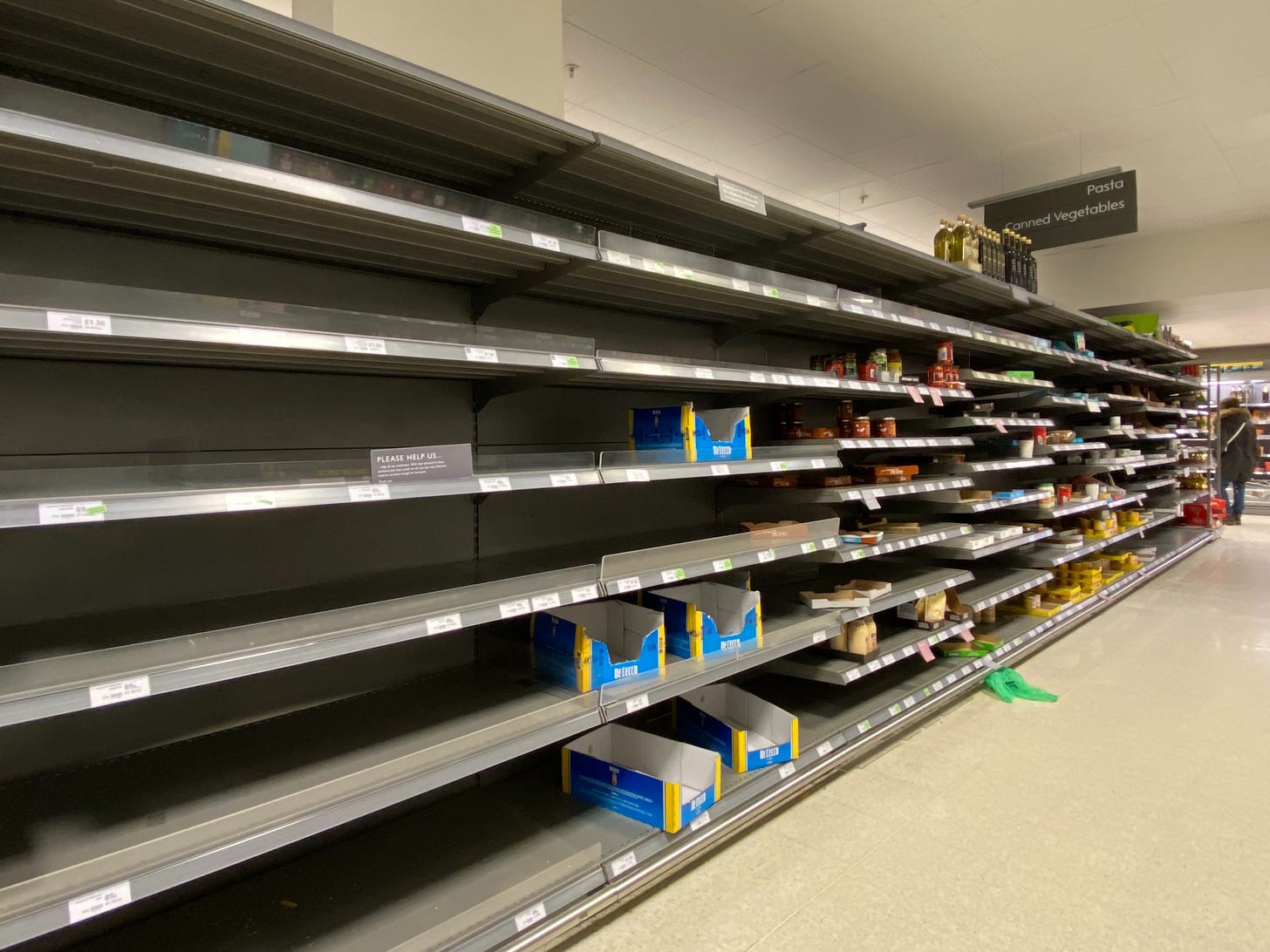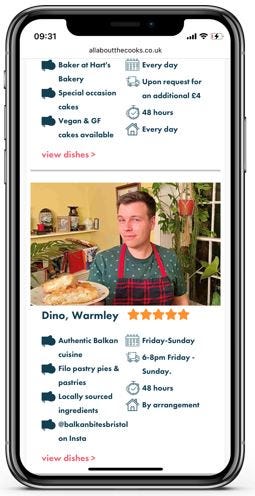Off The Shelf is more than a month old! Thank you all for your support and the amazing comments I’ve had. If you’re enjoying it, please share with a mate or two!
This week, I’ve been struck by the baby formula shortage that has quickly become a crisis in the United States.
What’s that got to do with sustainable food? I hear you all cry in unison. Well, as I pointed out in one of my earlier notes, sustainability isn’t just about the environmental impact. The UN’s definition of a sustainable food system hinges around “food security and nutrition for all.”
Read on.
The shortage: how did it start? In February, Abbott Nutrition, which makes powdered infant formula, had to recall some of its products and close its plant in Michigan after four babies were hospitalised with bacterial infections suspected to be linked to Abbott formula. Sadly, two of the babies died.
It turns out that Abbott alone accounts for about half of all the formula produced in the US. 90% comes from just four companies, of which Abbot is the biggest player. So when it halted production, shelves emptied. It has been estimated that around 40% of baby formula stocks have been depleted.
To make things worse, other US producers were already struggling to forecast demand levels as the economy recovered from the pandemic. And there’s been an increase in the number of babies born this year. And buying in formula from overseas has been difficult. Strict US regulations mean many foreign formulas are illegal, and there are high import taxes on the few which are approved.
Why do people need formula anyway? What’s wrong with breast milk? It might not shock you that I’m not an authority in the “formula vs breast milk” debate. But I know it can be a sensitive subject. There are plenty of reasons why some mothers want or need to use formula: some can’t produce enough breast milk, and some can’t breastfeed due to medical conditions – for example, those undergoing chemotherapy. Others don’t have the option to breastfeed because they haven’t given birth – adoptive parents, for example. In addition, there is no paid statutory maternity leave in the US, meaning that many are left with no option but to use formula as they return to work. The fact is, regardless of why people are using formula, once they are, they depend on it.
How bad is it? Months of ongoing shortages have led to anxiety for all parents worried about how to feed their children. There have also been some especially disturbing developments:
Premature babies, and those with special developmental needs, are particularly struggling from a lack of nutrition as parents can’t find the right formula for them
Some babies have been rushed to hospital after parents have given them “homemade” formulas
There’s a black market developing, with people buying formula online and reselling it at much higher prices to desperate parents
What’s the prognosis? President Biden has been heavily criticised for being slow to act. But eventually, his administration enacted ‘Operation Fly’ in May, compelling private companies to ramp up production and using Department of Defense aircraft to import formula from overseas.
So at least some supplies are coming from elsewhere. And this week, the Abbott plant reopened. But production and distribution takes time, with weeks expected before supply is fully back online again – the company has said it will take six to eight weeks to get formula back on shelves. So the crisis not over.
This episode reminds us that food isn’t to be taken for granted, and threats to food security aren’t just related to conflict or natural disasters. Supply chains – whatever the sector – can come under stress at any moment, and from any direction. While shortages can sometimes take on a faintly amusing, farcical hue (toilet roll in March 2020), when key food items are affected, they can pose real health risks to those most vulnerable.
MORSELS
🚙 Uber is helping get food to Ukraine
🍗 World Food Safety Day has come and gone – who celebrated?
🚀Another food waste tech startup in Copenhagen has raised a few million Euros
ENTERPRISE SPOTLIGHT – ALL ABOUT THE COOKS
I like the sound of this one. The gig economy makes its way to home chefs. This week, food startup All About The Cooks closed its fundraising round on Crowdcube, overshooting its target to raise £328k.
All About The Cooks is an online marketplace where people can sell what they cook to their neighbours. The idea is that it should be easy to buy local, affordable, healthy food from real people nearby. I think this is a great idea – I’ve always been frustrated by the fact that there are no genuinely healthy takeaway options – a salad from the outstanding Kebab Centre is the best my area has to offer on that front. How good would it be if you could try something new that a neighbour has rustled up when you can’t be bothered to cook after a long day?
The naysayers will cry that there’s no way this can be safe or hygienic, and that you won’t be able to trust people to provide high quality meals. But, just like a restaurant, cooks will be required to have a hygiene certificate and register as a food business. I bet people had similar misgivings about Uber when it first started. But if people are more than happy to pay to put themselves into a stranger’s car whilst blind drunk, why wouldn’t you eat a meal prepared by a neighbour?
They’re centred around Bristol at the moment, but they have big ambitions to scale up. This is one I’ll be watching closely. What do you think – will this one take off?
HOW CAN WE STAY IN TOUCH?
📸 I’m on Instagram where I chronicle my cooking @slothychef
👤 Same deal for Facebook Slothy Chef
📧 Drop me a note at info@slothychef.co.uk
GROWING OUR COMMUNITY
I’ve got big ideas about building a community around this subject. I hope you can get involved. It would mean so much to me if you could share across your networks using the button below. ❤️ It also helps massively if you could give me a sign that you like this!
UNTIL NEXT SATURDAY…. SLOTHY OUT
🦥 👋🏻🎤





